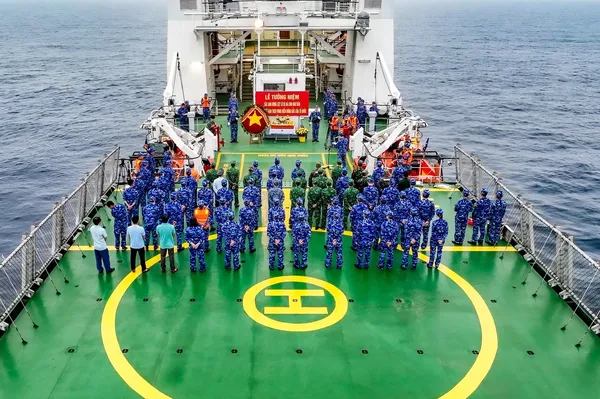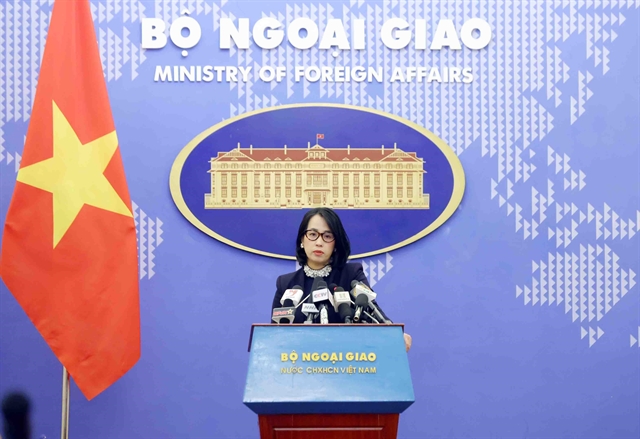 Politics & Law
Politics & Law

 |
| Spokeswoman for the Ministry of Foreign Affairs Phạm Thu Hằng addresses the media during the press briefing in Hà Nội on Thursday. — VNA/VNS Photo Phạm Kiên |
HÀ NỘI — Việt Nam asked China to honour the signed agreement on the Gulf of Tonkin as well as the 1982 United Nations Convention on the Law of the Sea (UNCLOS), the foreign ministry says in response to a question regarding China's declaration of a new baseline outlining its territory in this gulf.
Spokeswoman for the Ministry of Foreign Affairs Phạm Thu Hằng, during the press conference in Hà Nội on Thursday afternoon, said that on December 25, 2000, the two countries signed an agreement on the delimitation of the Gulf of Tonkin, which went into effect on June 30, 2004, delimitating each other's territorial seas, exclusive economic zones and continental shelves within the Gulf of Tonkin.
Hằng said that Việt Nam believes all coastal countries need to abide by the 1982 UNCLOS when drawing the territorial baseline used to calculate the width of the territorial waters and to ensure that the baseline does not affect the lawful rights and interests of other countries, including the freedom of navigation and the freedom of transit passage through straits used for international maritime activities in accordance with the 1982 UNCLOS.
"Việt Nam has been and will continue to discuss our positions with China on this matter, in a spirit of friendship, mutual understanding and mutual respect."
Việt Nam asks that China respect and abide by the agreement on the delimitation of the territorial seas, exclusive economic zones and continental shelves of the two countries in the Gulf of Tonkin signed in 2000, as well as the 1982 UNCLOS.
The spokesperson remarked that at the same time, however, Việt Nam "reserves its lawful rights and interests in accordance with international law as well as its position as mentioned in the statement on June 6, 1996, made by the Government of Việt Nam, pertaining to the statement made by the Government of China on the May 15, 1996, which announced the baseline used to calculate the width of China's territorial sea."
"In every diplomatic relationship, including between Việt Nam and China, the differences between the two countries will be discussed," Hằng noted, in response to whether the new announcement from China will affect bilateral cooperation in general and the gulf agreement in particular.
The Gulf of Tonkin borders both Việt Nam and China, with an area of 126,250sq.km. The body of water is considered to hold great significance to both countries’ security and defence along with economic development, given its abundant fisheries resources and oil and gas reserves. The two countries have attached importance to the management and exploration of the area.
The Việt Nam-China Maritime Boundary Delimitation Agreement in the Gulf of Tonkin, composed of 11 articles, is a culmination of nine years of talks between the two sides. The agreement is based on principles such as mutual respect for independence, sovereignty and territorial integrity, non-interference in internal affairs, mutual benefit, and the strengthening of traditional friendship and neighbourly relations. It aims to uphold stability and promote the development of the Gulf region. — VNS




